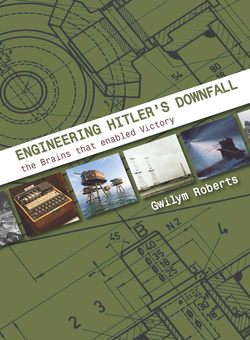Читать книгу Engineering Hitler's Downfall - Gwilym Roberts - Страница 49
На сайте Литреса книга снята с продажи.
Goodeve, Commander Sir Charles OBE FRS RNVR (1904–80)
ОглавлениеBorn and educated in Canada, he obtained a BSc in 1925 from the University of Manitoba after studying physics and chemistry. He served in the Winnipeg division of the Royal Canadian Naval Volunteer Reserve before moving to University College London in 1927. Here he later became a reader in physical chemistry, his research work there resulting in his election as a Fellow of the Royal Society in March 1940.
After transferring to the RNVR he attained the rank of lieutenant-commander RNVR and was attached to HMS Vernon, the RN’s torpedo and anti-submarine headquarters which also oversaw electrical developments. Having successfully developed countermeasures for magnetic mines, in the summer of 1940 he became the senior technical officer in the Admiralty’s newly established Department of Anti-Aircraft Weapon Development, later renamed the Department of Miscellaneous Weapon Development, (DMWD), which was also known as the ‘Wheezers and Dodgers’. Subsequently promoted to commander he was appointed the Admiralty’s Assistant Controller, Research and Development, in 1942 with broad oversight of the Royal Navy’s research and development work.
He was instrumental in developing the ‘Double L Sweep’ for exploding magnetic mines safely and the degaussing system for making ships magnetically neutral (for which he received £7,500 from the Royal Commission on Awards to Inventors), and the Hedgehog depth charge launcher that was credited with the destruction of some 50 U-boats.
He was knighted at the end of the war and also awarded the US Medal of Freedom.
Post-war he served as director of the British Iron and Steel Research Association where, among other things, he introduced the principles of Operational Research. Following retirement in 1969, despite failing health due to the onset of Parkinson’s disease, he immersed himself in various activities including the establishment of the Operational Research Society. He died in 1980.
Had these scientists and naval officers not found solutions as rapidly as they did, the early months of the sea war would have proved to be extremely costly as well as dangerous for Britain. Interestingly, the same technology is still largely applicable today.
Double L sweep
